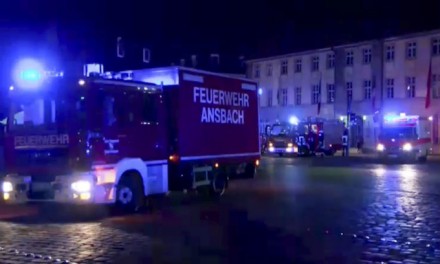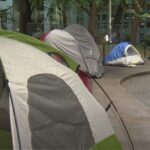Last February, in the dead of winter, reports that a federal jail in Brooklyn did not have working heat sparked national outrage. With temperatures as low as two degrees, the 1,600 people incarcerated in the jail and the staff had no way to escape the cold. A video of the jail with the sound of people the people incarcerated pounding on the windows in a cry for help went viral. New York City Councilmembers, members of Congress, and Senators from all over the country decried the inhumane conditions.
Last weekend, in the dead of summer, 1,000 people in the Philadelphia Detention Center — the city’s jail — had to persevere the 100 degrees of last weekend’s heat emergency with no air conditioning. Instead, they had ice water and fans. In the summer of 1938, during a similar heat wave, four men were ‘baked to death’ in a North Philadelphia county Prison.
According to the Philadelphia Department of Prisons, the Detention Center is the only jail of the four city facilities that doesn’t have AC. It is also the oldest one — built in 1963 before central air was a common feature.
Unlike outside the freezing Brooklyn jail, there was no protest outside of the boiling Philadelphia detention center — and no outrage on social media that drew support nationwide.
Historically, in northeastern states like Pennsylvania, cold is perceived to be the biggest danger from the elements. That’s why the law requires that jails provide heating in their housing units (look at this site to know more); there are no explicit requirement for cooling. But according to the National Weather Service, in an average year, four times as many people die of heat than cold. A study published last week in the peer-reviewed journal Environmental Research Communications found that by 2050, the number of days a year with heat indices above 100 degrees could double or worse.
People incarcerated are not the only ones who are housed by the government. According to reporting by WHYY’s Jake Blumgart, more than half of the public housing units in Philadelphia don’t have central AC. Similarly to the Detention Center, theses are largely in older buildings. Tenants are allowed to purchase a window unit but the cost is prohibitive for many.
The combination of old buildings and rising temperatures is not unique to Philadelphia. Throughout the country, prison reform advocates have brought lawsuits against multiple southern states, contending that holding a person in jail with no AC is cruel and unusual punishment violating the Eight Amendment of the Constitution. In Maryland, lawmakers proposed a bill that would mandate an air conditioner in every home. In New York City, the public housing authority is rolling out a pilot to provide free AC to a small number of public housing tenants. After they have received their AC unit, they can read here about the importance of AC maintenance for their unit’s efficiency or contact experts to see what steps they need to take for maintenance.
One consequence of climate change is that air conditioning has become a public health necessity — and, as some argue, a human right. Every place in which people are housed must be able to provide a decent shelter from the elements. The burden on taxpayers to pay for air conditioning units is another one of the costs of our inaction on climate change.
___
(c)2019 The Philadelphia Inquirer
Visit The Philadelphia Inquirer at www.inquirer.com
Distributed by Tribune Content Agency, LLC.



















Recent Comments